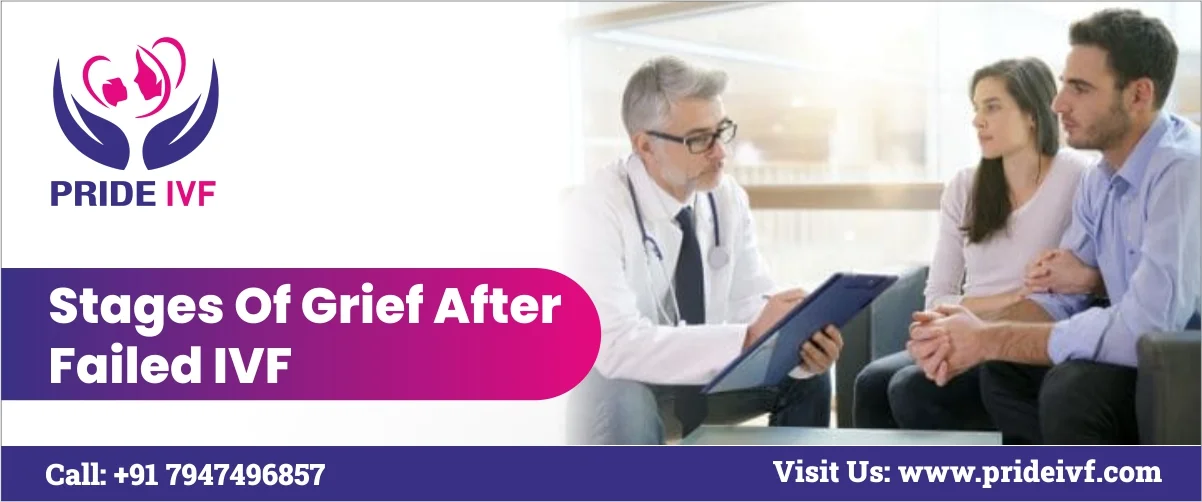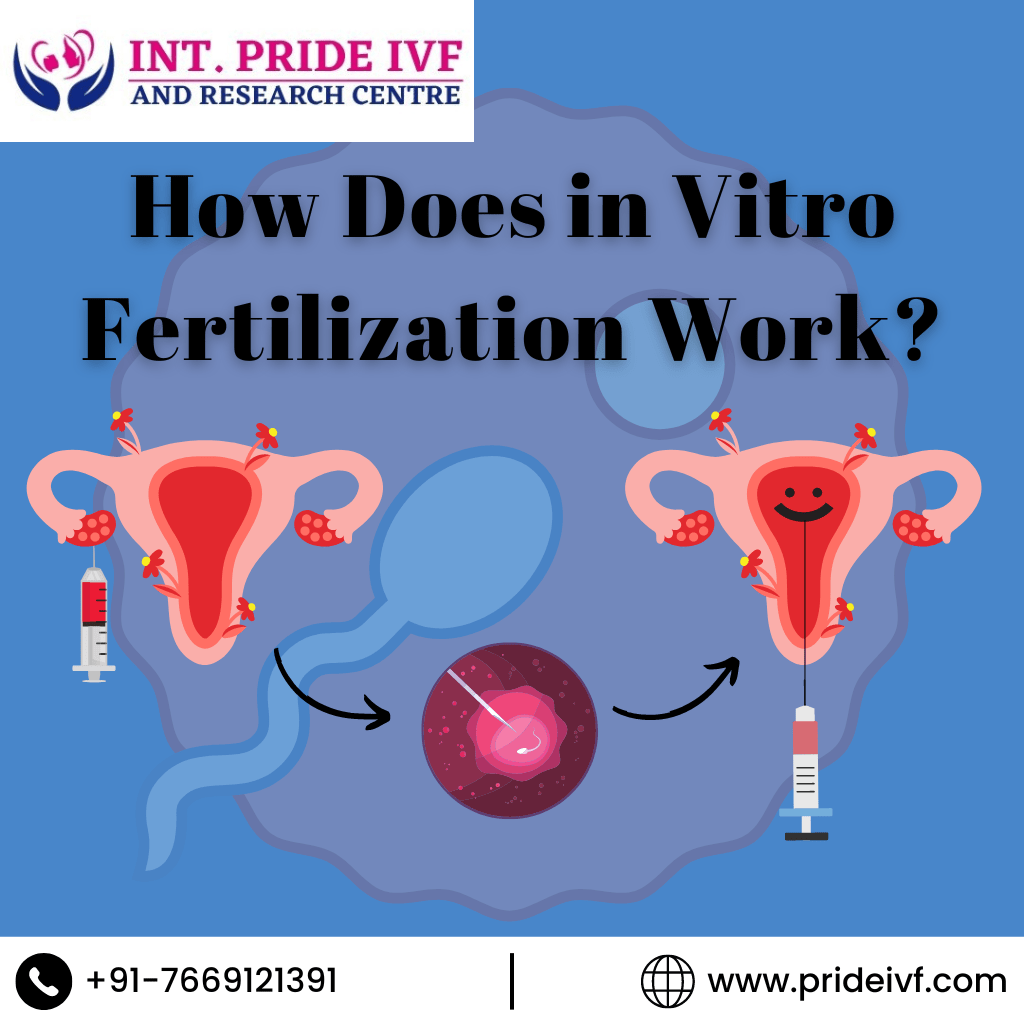In Vitro Fertilization (IVF) accompanies a high success rate. But, the procedure may also fail in several cases. A failed IVF can evoke several emotions in individuals and couples, with grief being the most prevalent one. There are various stages of grief most individuals who’ve had a failed IVF procedure may experience, which we will discuss in this blog.




Stages of Grief After Failed IVF
Grief is natural after a failed IVF process. After all, all couples and individuals see IVF as their last resort to experience parenthood. However, grief is subjective and may differ for individuals based on various factors. Also, grief after IVF occurs in several stages for most, and here’s an overview of the common stages of grief after failed IVF:
Stage 1: Experiencing Shock & Denial
It’s normal to experience disappointment, in addition to shock and grief, on finding out about a failed IVF cycle (Also Read: Why IVF Fails?). You may feel like your world has ended and that all your efforts have gone in vain. Several individuals and couples may also think that their final attempt to experience parenthood has failed, and they may never be able to become parents. There may be a feeling of numbness, making it difficult for individuals and couples to understand the seriousness of the situation. The initial shock can make it difficult to process things. It may also bring denial, where the affected individuals may choose to deny the circumstance they are in and still have hope of seeing a positive outcome.
Also Read: Why does IVF fail with good embryos
Stage 2: Feeling Angered
People may experience a wave of rage and frustration after the initial shock goes away. They might have a strong sense of disappointment and wonder why they had to experience this. When anger is focused inward, it can result in emotions of shame, guilt, and self-blame. Their dissatisfaction with the situation is fueled by the obvious unfairness of the situation. They might become resentful and find it difficult to understand why their efforts have been in vain.
Stage 3: Trying To Change Things
People often try fixing things in an effort to reclaim some measure of control over their situation. They might bargain both internally and externally, offering assurances to a higher power, their partner, or themselves in exchange for a different result. It’s an effort to change history and reverse the unsuccessful IVF cycle. They might discover that they are falling victim to this feeling, thinking that they can alter events. In the midst of hopelessness, this type of bargaining with self offers a sense of relief from the suffering.
Stage 4: Feeling Depressed
As individuals and couples begin to come to terms with reality, they might begin to feel hopeless. This may be triggered by a feeling of loss and hopelessness. They may begin to feel they have lost all hope and withdraw themselves from their favourite activities, ultimately slipping into depression. Depression may also have physical implications, which may impact appetite , cause fatigue, and cause difficulty sleeping.
Stage 5: Accepting the Situation & Moving On
The final stage is acceptance, and moving on in life. By this stage, you’d become more comfortable with the outcomes of your failed IVF cycle. (3 failed ivf? What next) You may still feel distressed, but you’ll still be over the intense emotions that you had earlier, willing to move on in life. It’s time to move on to the next phase, focusing on exploring more ways to experience parenthood. You may also want to focus on things that you like to do, pursue your hobbies, and spend time with your loved ones.
You must note that grief is subjective, and every individual may experience it differently. They may not experience it the same way, and their transition to different stages may vary. It’s important to communicate all emotions to friends and family in order to move on in life and explore more options.
Lets get started
How to Deal with Grief After IVF Failure?
A failed IVF can be emotionally and mentally challenging. But, several coping strategies can help get over a failed IVF procedure and get back to normal life. Here are some coping strategies that can help you recover from grief after a failed IVF procedure:
- Seek Professional Counselling: Seeking professional counselling can also be very helpful in coping with this period. You can consult an experienced therapist and discuss your feelings and thoughts without worrying about any judgements. Expressing your emotions through words can have a therapeutic effect. With professional therapy, you will be able to recognize your feelings associated with grief, such as fear, sadness, resentment, and anger, and express them, which you otherwise wouldn’t have been able to. In addition, couples counselling can also be a helpful tool for re-establishing and enhancing communication between you and your partner.
- Give Yourself Time to Heal: Recognizing your feelings of sadness, disappointment, and loss is critical. Let yourself process these feelings in a healthy way by writing in a notebook, speaking with a therapist or trusted friend, or participating in activities that make you feel better. You do not have to force yourself to feel better. Take time to make peace with your feelings. Also read: what happens to your body after failed ivf.
- Get Support from Family & Friends: We all have some fantastic people in our lives to help us overcome feelings of sorrow and resentment. These could be your family members or friends. It’s best to stay connected to your loved ones during this period, as they can support you through this difficult period. You can share your feelings with them so they can empathise, understand, and support you. You can also try increasing conversations with your partner, as it will help you feel better and strengthen your bond.
- Practice Self-Care: It may sometimes be challenging to find answers to why things happen to you. However, there comes a point when you have to leave it all behind and focus on taking care of yourself. It’s one of the most crucial parts of recovery after a failed IVF. You must devote all your energy to self-care. Get counselling or therapy, step out to get some fresh air, and practise relaxation techniques such as yoga, meditation and deep breathing. Take time for your favourite hobbies, or treat yourself to a relaxing day at the spa.
- Discuss the Next Steps with Your Doctor: You must schedule an appointment with your fertility specialist and ask them about the next steps. There are multiple questions to ask ivf doctor after a failed cycle. They will help you understand the possible reasons for the failure of your cycle and suggest the most suitable alternatives for you. You can ask them all the questions you have about the procedures and discuss all your worries and concerns.
- Explore Different Routes to Parenthood: Consider other options, like adoption, donor conception, or surrogacy, to experience parenthood. While mourning the loss of a biological child is expected, considering other routes to parenthood can give hope and opportunities for the future.
- Do Not Give Up: Remember, your options do not end with a failed IVF. You still have several options available, which you can only explore if you do not lose hope.
With these coping strategies, you can get over the challenges of IVF failure and march towards a happier and healthier future with strength and hope.




